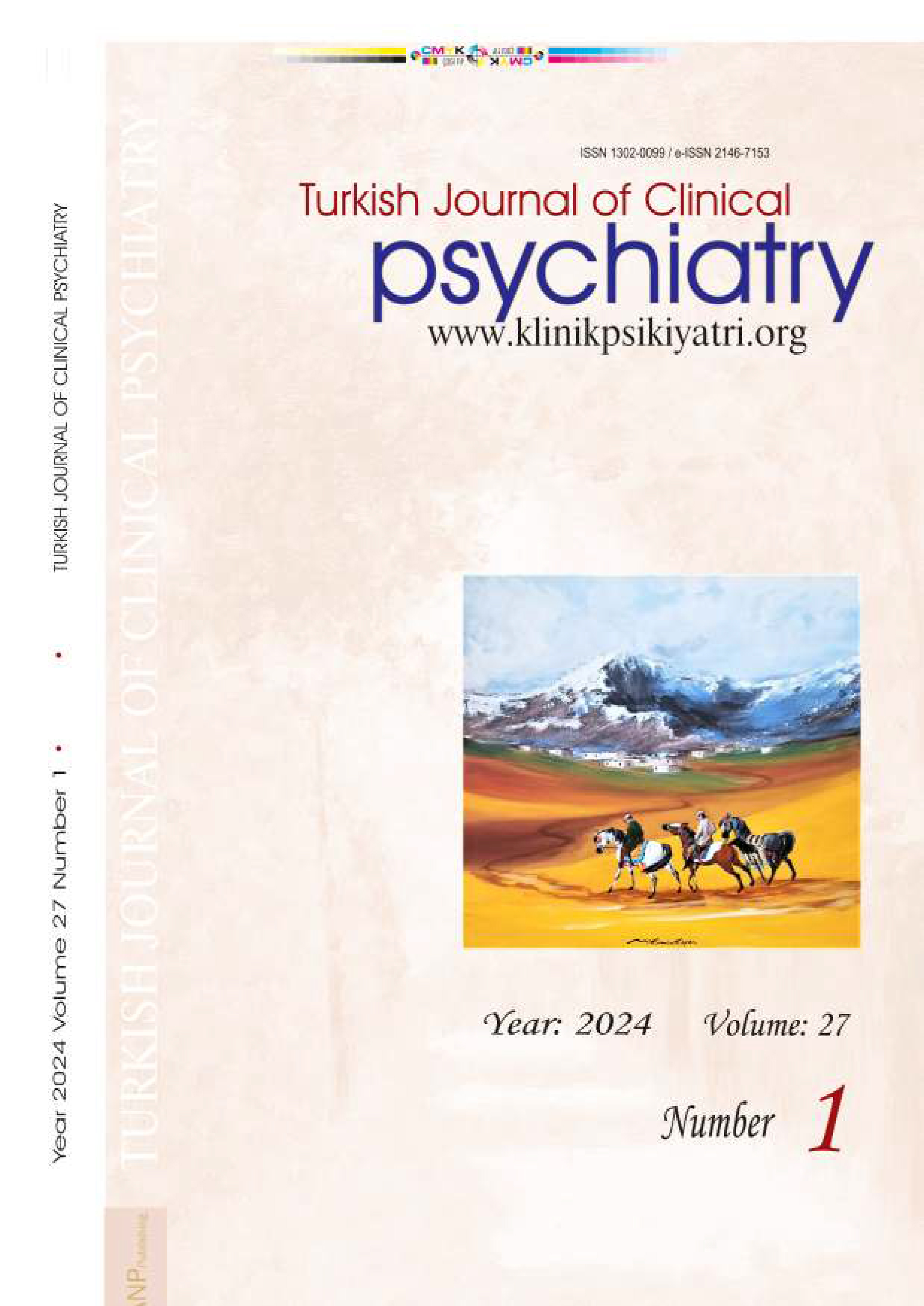
Psychodynamic aspects and clinical approach to the concepts of factitious disorder/factitious disorder imposed on another: A review (tur)
Dilşad Foto ÖzdemirDepartment Of Child And Adolescents Psychiatry, Hacettepe University Faculty Of Medicine, Ankara, Turkey.Factitious Disorder is characterized by fabricating physical or psychological symptoms, injuring or inducing the illness with the intent of deception. Factitious Disorder Imposed on Another is mimicking physical or mental, misleading symptoms, injuring or causing the disease on another. In this disorder, behaviors of deception are obvious, even without any extrinsic reward. It is a severe form of child abuse which leads to high levels of mortality and morbidity. It is stated in the literature that raising awareness of physicians about the disorder can reduce and even sometimes prevent the mortality and morbidity. Multidisciplinary approach is of great significance for the process to be carried out properly and for the disorder to be detected. Turkey suffers from the lack of multidisciplinary teams of physicians who can study and treat such a disorder. It is clear that the judicial system in the country is ignorant of such cases, does not usually commence legal proceedings and cannot prevent the child abuse. This article aims to extensively discuss the biopsychosocial and psychodynamic features of the concepts of factitious disorder and the factitious disorder imposed on another and undertakes to set a course for these concepts in the light of literature research and recent information on the issue, considering the multidisciplinary teamwork conducted by the Commission on Evaluation, Research and Treatment of Child Abuse, clinical experiences and a wide range of concept research included in the literature.
Keywords: Factitious Disorder, Munchausen syndrome by proxy, child abuse, psychopathology,Yapay bozukluk/bakım verenin yapay bozukluğu olgularına psikodinamik bakış ve klinik yaklaşım: Bir gözden geçirme (tur)
Dilşad Foto ÖzdemirHacettepe Üniversitesi Tıp Fakültesi Çocuk ve Ergen Ruh Sağlığı ve Hastalıkları Anabilim Dalı, AnkaraYapay Bozukluk fiziksel veya psikolojik belirtilerin taklit edilmesi, yaralamanın veya hastalığın indüklenmesinin aldatma niyetiyle oluşturulması ile karakterize bir bozukluktur. Bakım verenin Yapay Bozukluğu bir başkasında fiziksel veya psikolojik belirtileri taklit etme, aldatma amaçlı belirtiler üretme, yaralama veya hastalığa neden olmadır. Bu bozuklukta, dışsal bir ödül olmaksızın aldatmaca davranışları belirgindir. Yüksek mortalite ve morbiditeye neden olan ciddi bir çocuk istismarı türüdür. Literatürde, hekimin hastalık hakkında farkındalığının arttırılmasının morbidite ve mortaliteyi azaltacağı veya önleyebileceği belirtilmektedir. Bu bozukluğun belirlenmesi ve sürecin doğru yürütülmesi için multidisipliner yaklaşım hayati öneme sahiptir. Ülkemizde bu hastalarla çalışabilecek multidisipliner ekipler oldukça sınırlı sayıdadır. Hukuk sisteminin bu davalara çok yabancı olduğu, genellikle yasal süreci başlatmadığı ve çocuk istismarını önleyemediği görülmektedir. Bu makalede hastanemizin Çocuk İstismarı Değerlendirme Araştırma ve Tedavi komisyonunun multidisipliner ekip çalışması, klinik deneyimleri ve yazında yer alan olgu serileri göz önüne alınarak Yapay Bozukluk/Bakım verenin Yapay Bozukluğu olgularının biyopsikososyal ve psikodinamik özelliklerini çok boyutlu olarak tartışmak, alan yazın eşliğinde, son bilgiler ışığında bu olgulara yaklaşımla ilgili bir yol haritası sunmak amaçlanmıştır.
Anahtar Kelimeler: Yapay bozukluk, bakım verenin yapay bozukluğu, çocuk istismarı, psikopatolojiCorresponding Author: Dilşad Foto Özdemir, Türkiye
Manuscript Language: Turkish
(3703 downloaded)




